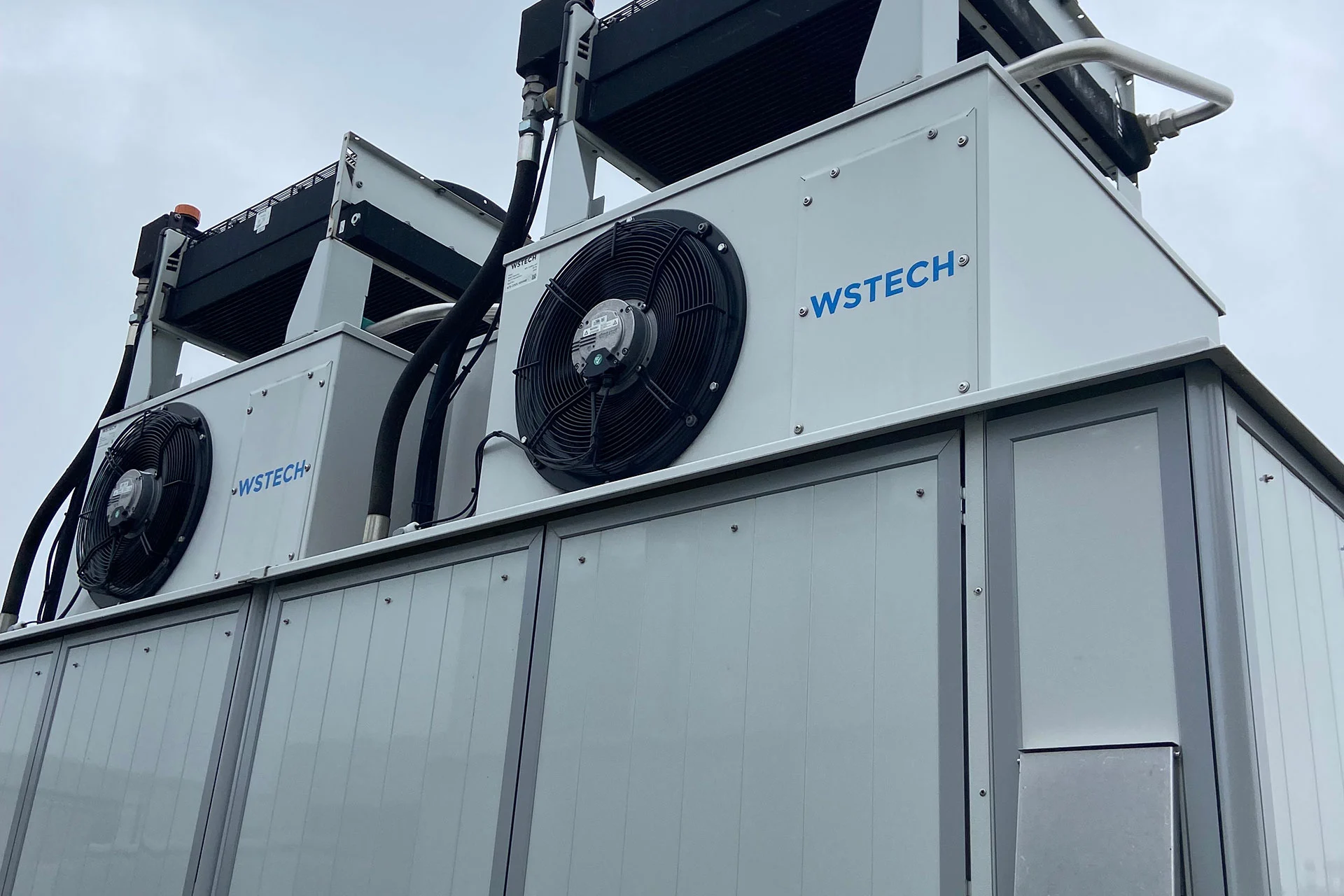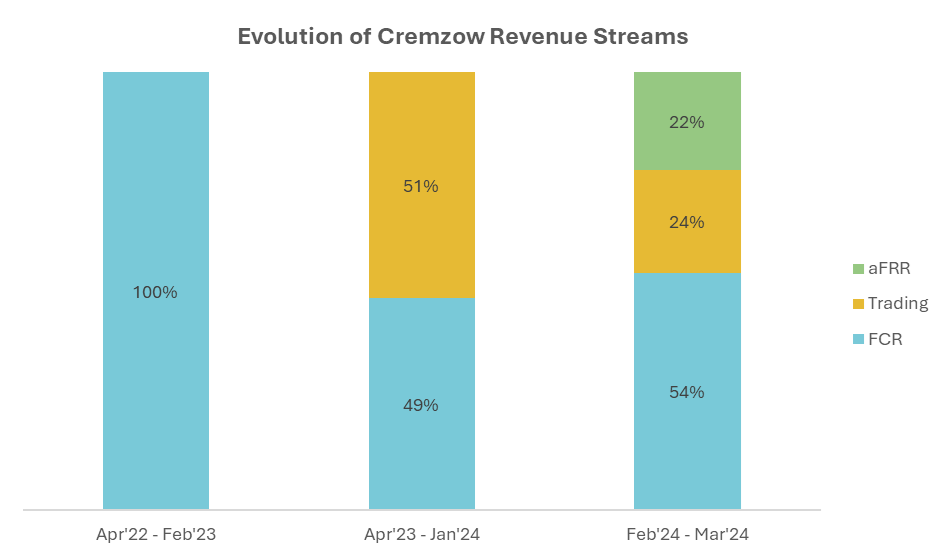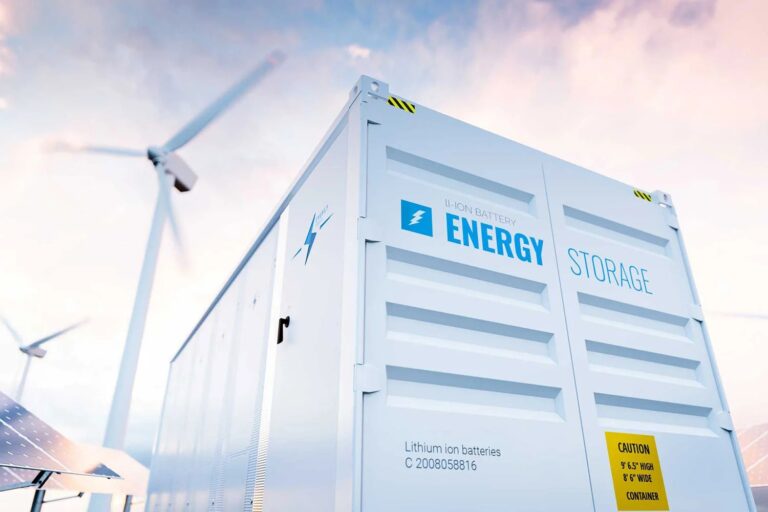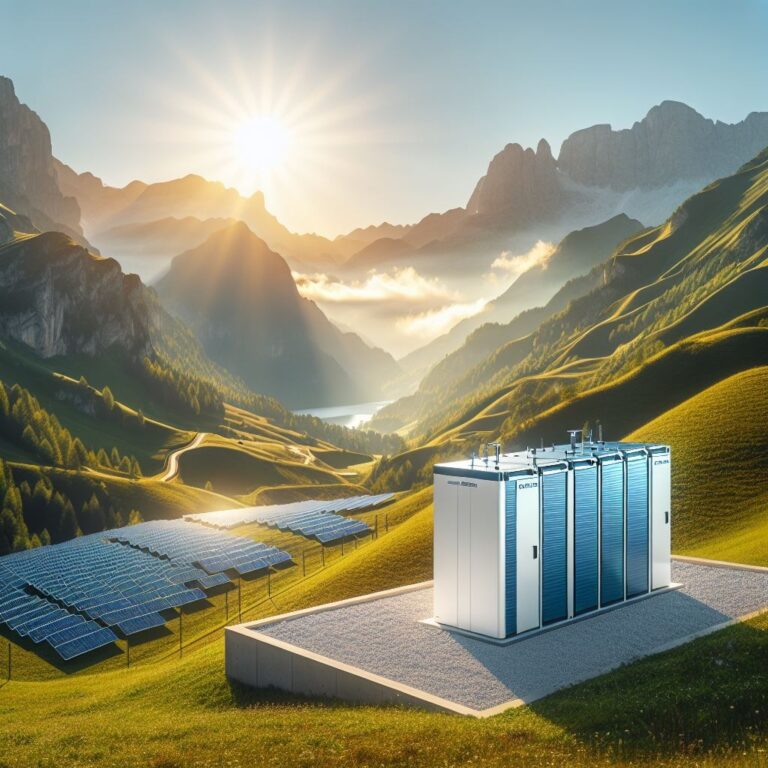
How Revenue Diversification has Delivered Value in Germany
Diversification has been a core principle of Gore Street Energy Storage Fund’s (GSF) investment approach since 2019, when the first acquisition outside of Great Britain was completed. After taking a controlling interest in 160 MW of energy storage assets in the Irish grid, the fund has expanded to Germany, Texas and California. This strategy has been enacted by Gore Street Capital (GSC), which has also begun to manage new funds with the launch of Japan’s first energy storage fund alongside partners at ITOCHU.
While GSF’s diversification has been defined by geographical spread across multiple jurisdictions, it also demonstrates GSC’s approach to delivering revenue for the fund. The assets under GSC’s management essentially perform similar activities in each market but, as they are almost fully uncorrelated from each other, active management is required to ensure value can be delivered from as wide a range of revenue streams as possible.
A prime example can be seen in Germany, which has quickly grown to be one of the largest battery energy storage markets in mainland Europe. While most of this capacity is small-scale units installed in homes (7.9 GW), it has also reached 1.4 GW of large-scale battery systems, as of July 2024, without the kind of government support being considered in other markets like Italy and Spain. These systems are instead supported by a range of ancillary services and access to trading opportunities in wholesale markets.
GSC has managed the 22 MW/29 MWh Cremzow asset in Germany since March 2022 – just one month after Russia’s invasion of Ukraine. This conflict sent shockwaves across Europe’s energy system as countries previously reliant on Russian fossil fuels raced to reduce their exposure. Supply constraints resulted in considerable volatility in European wholesale markets as gas prices spiked across the region. In Germany, this resulted in high prices for Frequency Containment Reserve (FCR), the primary response service for addressing deviations in grid frequency, which mirrors marginal gas prices.
The Cremzow asset enacted an FCR-only strategy during this time—due, in part, to the capabilities of the project’s optimiser—which delivered high revenues while supporting the German grid during a turbulent period.
GSC was fully aware, however, of the limited period these market conditions would persist before the European Union took steps to bolster its gas storage and divest away from Russian gas. A new Route-to-Market (RtM) provider was, therefore, selected to enact a data-driven strategy offering wider access to wholesale trading and other alternative revenue streams.
As expected, FCR prices fell over 2023/24 as gas supplies became less restricted and grid service prices normalised. Engagement of the new RTM provider, which offers algorithmic trading methods, led to enhanced flexibility and revenue potential through high-frequency trading, mitigating the risks associated with an FCR-centric strategy. Cremzow was also successfully prequalified for both sub-services of automatic Frequency Restoration Reserve (aFRR)–energy and capacity—which is triggered if a drop in national power supply persists beyond the period covered by FCR.
This combined approach, leveraging additional services and algorithmic trading, allowed the equivalent capacity from the Company’s German asset to surpass the revenue achievable from a strategy focused solely on FCR by 43% for the year ended 31 March 2024.
The evolution of Cremzow’s revenue stack has ensured the asset is not reliant on a single source and is, therefore, protected from volatility in any single market while retaining access to the widest possible range of revenues in Germany.

This has also enabled GSF to continue to benefit from the upside in grid volatility and FCR prices experienced in Germany in recent months. High solar generation has pushed thermal generators to increase their bids in the FCR and aFRR markets to cover their costs, providing more lucrative opportunities for alternative flexible assets like Cremzow.
For more on this trend, take a look at the GSF June factsheet.
Diversification across not just geographies and regulatory systems but revenues within a single market is, therefore, continuing to deliver value to GSF and its shareholders. It also positions the Company to capitalise on upcoming opportunities as Germany grows its energy storage ambitions.
In December 2023, for example, the Federal Ministry for Economic Affairs and Climate Protection published an electricity storage strategy designed to remove barriers for the asset class. This will support Germany’s renewable energy targets for 2030, which include 115 GW of onshore and 30 GW of offshore wind power, as well as 215 GW of solar PV. The strategy was followed by the announcement of a Capacity Market mechanism, set to launch in 2028, similar to those used in other markets to secure long-term contracted revenue.
German large-scale battery storage is projected to reach 15 GW by 2030 based on the day-ahead wholesale market alone, rising to 61 GW by 2050, by which time the country is expected to benefit from €12bn in savings from the integration of cheaper, greener electricity. These figures could prove to be low estimates, with the business case for additional battery storage expected to be focused on intraday and system service markets.
An existing presence in the country also provides access to the wider European balancing system. FCR stretches to 11 transmission grid operators (TSOs) in eight countries to create a common market for procurement and exchange to balance the grid and counteract frequency deviation. Additional cross-border procurement of ancillary services has already been set up under long-term projects led by ENTSO-E, an assembly of European TSOs.
As Europe continues to increase its clean power ambitions, with a binding renewable energy consumption target of at least 42.5% by 2030, the internal wholesale market is targeted to become more integrated as demand for cross-border cooperation increases. The European Parliament has already agreed plans to place energy storage at the heart of a clean and stable electricity system, making Gore Street’s existing presence in mainland Europe all the more advantageous.
GSC is ready to deliver on these emerging opportunities as they are introduced while retaining access to a broad and complementary set of revenues. This will ensure that Cremzow is able to continue delivering strong financial performance while supporting the German and wider European transition to a cleaner, decarbonised energy system.
GSC was recently invited to present a Cremzow case study to industry members exploring profitable storage optimisation in Germany. A recording of the talk can be found below:

